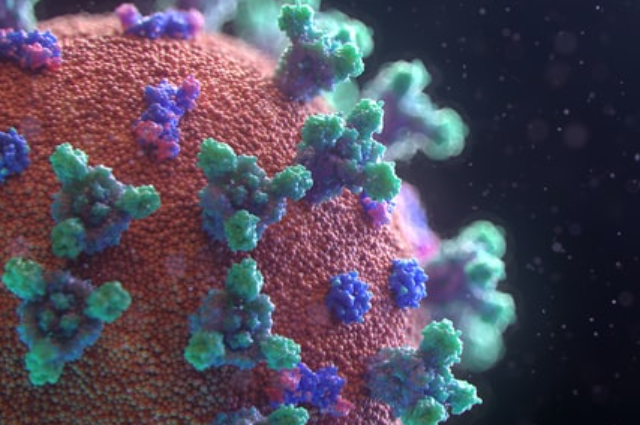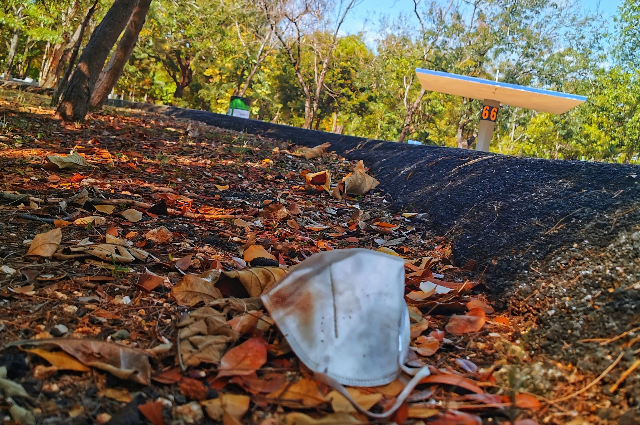
The coronavirus illness 2019 (COVID-19) outbreak is harming every aspect of human life, including the physical environment. The efforts required to stop the virus from spreading and the resulting halt in economic activity have had a substantial impact on the environment. The pandemic scenario improved air quality in various cities throughout the world, reduced GHG emissions, minimized water pollution and noise, and relieving strain on tourism places, among other things, which could help with the ecological system's rehabilitation COVID-19 also had certain negative repercussions, such as an increase in medical waste, haphazard usage and disposal of disinfectants, masks, and gloves, and a constant burden of untreated wastes damaging the environment. Economic activities appear to be returning quickly after the pandemic, and the situation may alter.
While the globe has agreed to an international investigation into the virus's origins, treatment, and response, the results of which are likely to take years, many people believe that the global pandemic is the consequence of human activity, such as deforestation, animal commerce, and rising urbanization. While medical improvements have kept previous epidemics under control, many speculated that a global pandemic of this magnitude was only a matter of time.
The pandemic's disruption offered cover for illegal forestry activities. This was shown in Brazil, where satellite photography revealed a 50 percent increase in deforestation in the Amazon jungle compared to baseline values. The pandemic's disruption offered cover for illegal forestry activities. This was shown in Brazil, where satellite photography revealed a 50 percent increase in deforestation in the Amazon jungle compared to baseline values.

“The deceased are treated with care, decency, and respect,” which was not the case with the remains discovered floating in the Ganga in Bihar and Uttar Pradesh. Immersion of the deceased in the Ganga, which is revered by India's largely Hindu population, is an old custom. However, as part of the government's efforts to clean up the Ganga, state authorities have opposed this in recent years.
Various environmental difficulties and challenges, including water pollution, soil erosion, air pollution, and deforestation, are ramblingly supplied by the prompt of inorganic garbage and organic waste. During the coronavirus pandemic, various governments' actions such as lockdown and quarantine in most nations created a new demand in the market for internet shopping and home delivery services. As a result, the amount of organic waste generated in households has increased dramatically. Food items purchased online, on the other hand, are supplied in single-use and plastic bags and containers, resulting in an increase in inorganic waste.

Similarly, the amount of medical waste generated is enormous. The use of single-use Medicare goods such as gloves and PPE kits has boosted medical waste production, and hospitals in Wuhan are producing more medical trash during the epidemic than usual. The demand for masks during the epidemic has reached new heights, yet the materials necessary for these masks, which are mostly composed of non-woven fabrics, are extremely hazardous to the environment.
The natural ecosystem, as well as several protected flora and fauna species, are all at risk as a result of the coronavirus pandemic. People working in protected regions, such as natural parks, marine conservation zones, and wildlife sanctuaries, are detained at home because several governments have ordered lockdown and asked people to stay at home, leaving these locations and zones unmonitored. The absence of these people has resulted in a significant increase in wildlife hunting, illicit logging, and fishing.
Many regions, as well as the entire planet, saw a reduction in air pollution as a result of the pandemic's impact on travel and industry. COVID-19 and climate change can both be mitigated by reducing air pollution. The reduction was additionally dramatic because the virus struck at the same time as China's Lunar New Year celebrations. For the last week of January, factories and businesses were closed to commemorate the Lunar New Year festival.
Because of the pandemic, fish prices and demand have fallen, and fishing boats around the world are essentially idle. According to German scientist Rainer Froese, fish biomass would grow due to a substantial drop in fishing, and some fish, such as herring, could quadruple their biomass in European waters. As of April 2020, the only evidence of aquatic recovery is anecdotal.
Some animals have been observed in cities as a result of the lockdown and travel restrictions. Due to decreasing levels of human involvement and light pollution, sea turtles have been discovered laying eggs on beaches they previously avoided (such as the coast of the Bay of Bengal).
Despite the fact that around 2.2 billion people do not have adequate access to drinking water, they are encouraged to wash their hands frequently in order to combat the coronavirus pandemic. Around 4.2 billion people do not have access to a safe sanitation system (U.N estimates). Despite a few beneficial effects on the environment as a result of the lockdown, air pollution has fallen substantially as people were asked to stay in their homes and the bulk of vehicles were parked inside houses and garages. Environmental noise has decreased dramatically.
Many individuals began cycling as a result of the pandemic, and bike sales increased dramatically. Many cities have set up semi-permanent "pop-up bike lanes" to provide additional space for people who move from public transportation to bicycles.
We saw photos of cleaner rivers and lost mountain vistas, as well as a bluer sky, cleaner air, brighter moon and stars, and louder bird calls. Though fears of returning pollution will almost definitely be realized once the restrictions are lifted, some benefits will continue to exist.
Finally, COVID-19 will have both good and negative indirect environmental effects, with the latter being more significant. Short-term reductions in GHG concentrations are not a safe method to clean up our climate. In addition, the viral outbreak brings with it a slew of environmental challenges that could linger and become much more difficult to address if governments disregard the epidemic's environmental consequences.
